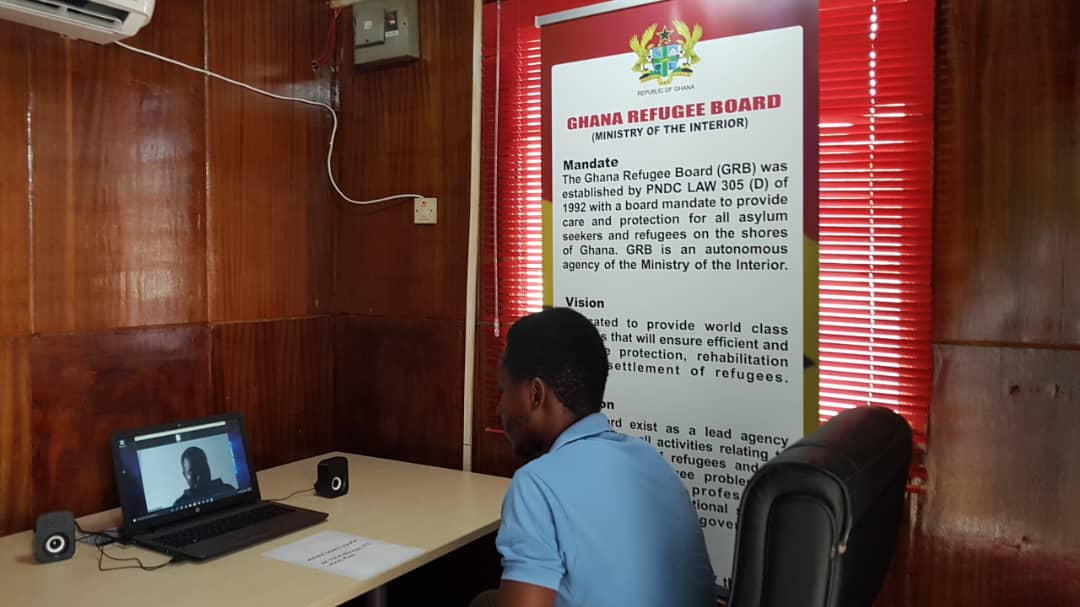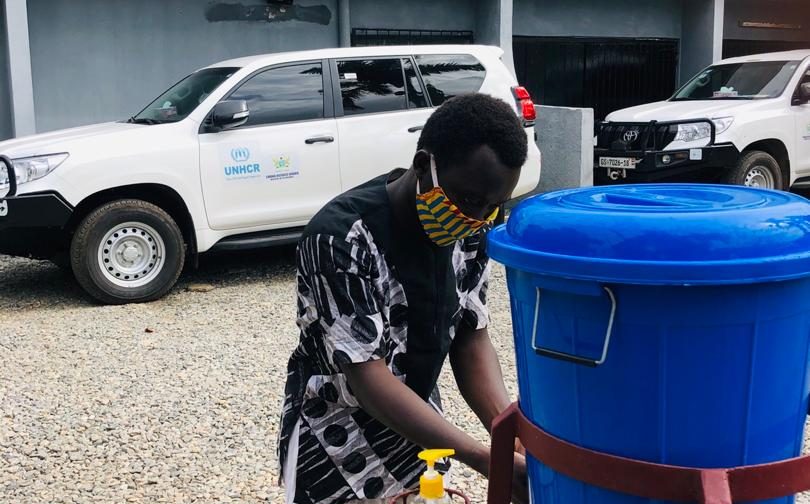Refugee Status determination is a key Protection Tool

An Asylum Seeker going through a virtual RSD interview. © UNHCR/Patience Folley
© An Asylum Seeker going through a virtual RSD interview.
In Ghana, service delivery sectors such as hotels, restaurants and schools have been shut down for several weeks. Social gatherings are prohibited as a result of the risk such interactions poses to people. For refugees and asylum seekers, it has even become more challenging delivering essential services to them, especially those requiring face to face meetings such as counseling sessions and refugee status determination interviews which are at the heart of what UNHCR and the Ghana Refugee Board (GRB) does to deliver protection
Refugee Status Determination (RSD) is a key protection tool which allows asylum seekers to enjoy international protection. The determination of refugee status has potentially profound implications for the life, security and enjoyment of rights of the individuals concerned. RSD interviews are usually held in a face to face meeting between officials and the applicant which often lasts for hours in an enclosed environment.
The Ghana Refugee Board exploring options to continue this core protection business has received support from UNHCR to continue with RSD interviews via a virtual RSD procedure which allow the Eligibility Officer to interact with the Asylum Seeker in separate rooms while observing all the covid-19 safety protocols.
Officer in charge of the Ghana Refugee Board, Tetteh Padi said the aim is to help protect both the interviewer and the persons going through the RSD interview. He said the virtual RSD will ensure the elimination of undue delays in granting refugee status to persons in need of international protection
“We needed to continue with the RSD interviews because we don’t want persons of concern to wait unduly but at the same time we needed to ensure both staff and asylum seekers were protected from possible spread of the disease” Tetteh Padi
Tetteh Padi explained that since it is not all refugees who have access to internet and video conferencing facilities, the GRB created the spaces at the office, having the asylum seeker and eligibility officer in different rooms to ensure interviewer and interviewee do not come into contact.
’Given the current directive on social distance, we were put in a dilemma because we realized that coming into close contact was not a good idea but at the same time the backlog on RSD cases needed to be cleared” he noted. Mr Padi was confident that this initiative which ensures continuity despite the current social restrictions will go a long way in clearing the backlog of RSD cases.
“We ensure the place is sanitized before and after each interviewer. And ensure all visitors to our compound strictly observe all the safety protocols” Tetteh Padi
Mr. Padi also added that other services such as counseling sessions for persons of concern are handled using the same procedure which ensures persons of concern are served.

An asylum seeker using the hand washing facility at the GRB before RSD interview © Ghana Refugee Board
An asylum seeker from Cameroon who benefited from the virtual RSD service was full of praise for the initiative.
“I have been waiting for over a year now for this interview and was expecting the corona virus will even cause my interview to be delayed further. But now I have gone through it successfully and I am happy” Tsaali Tangi
Share on Facebook Share on Twitter